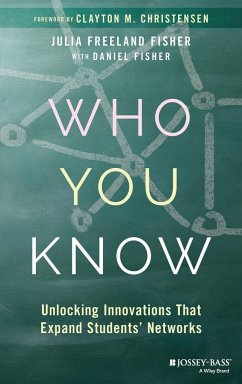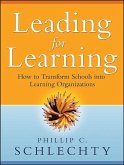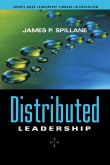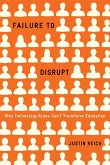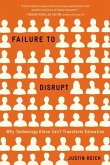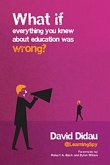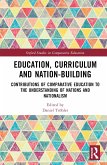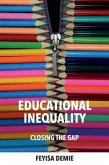IMPROVING STUDENT OUTCOMES BY DRAWING ON A DISRUPTIVE APPROACH TO RELATIONSHIPS AND NETWORKS"This book suggests a structure of school that would allow more individualseven those that we don't think of as part of our traditional education systemto mentor, support and inspire young people. In that vein, Julia's research and vision is indispensable to building a world in which individualseven those from wildly different backgroundscan help one another.I'm indebted to Julia for helping me see how disruptive innovation can play a part in providing diverse, meaningful, and enduring relationships for our students. How can schools take advantage of this monumental opportunity? Who You Know points the way forward."From the Foreword by Clayton M. Christensen "Opportunity is social, but schools ignore it. With this provocative observation, Julia Freeland Fisher launches what will be a revolution. To the rise of project-based learning and social intelligence, schools will add social capital as a named and measured outcomeand a new generation of tools and partnerships will help deliver on the promise Julia outlines."TOM VANDER ARK, CEO of Getting Smart and author of Better Together, Getting Smart, Smart Cities, and Smart Parents "At a time when our technology platforms have us caught in an echo chamber of our own social filters, rarely exposed to new perspectives, Julia brilliantly makes the case that we must help the next generation intentionally build diverse social networksand schools are the best place to start. It's not only critical for the health of our democracy, but it will improve the odds that every child has access to the American dream. Parents, school leaders and education technologists would greatly benefit from the data, research and most importantly, Julia's insights on how we can give all children the opportunity they deserve."JENNIFER CAROLAN, Co-Founder and General Partner, Reach Capital "Many thanks to Julia Freeland Fisher for being willing to explore how 'who you know' is as important as 'what you know' in a student's learning experience. While the neighborhood school may offer community and security, it can also be increasingly limiting if students are not developing far-reaching relationships that move them from the schoolyard to the world."BOB WISE, President, Alliance for Excellent Education and former governor of West Virginia "Who You Know is an engaging, compelling, and thought-provoking look at how schools couldand shouldhelp students build and maintain social networks, and why this matters so much. It's a must-read for both school system leaders and educational entrepreneurs who seek to serve them."JOANNE WEISS, former chief of staff to U.S. Secretary of Education, Arne Duncan

